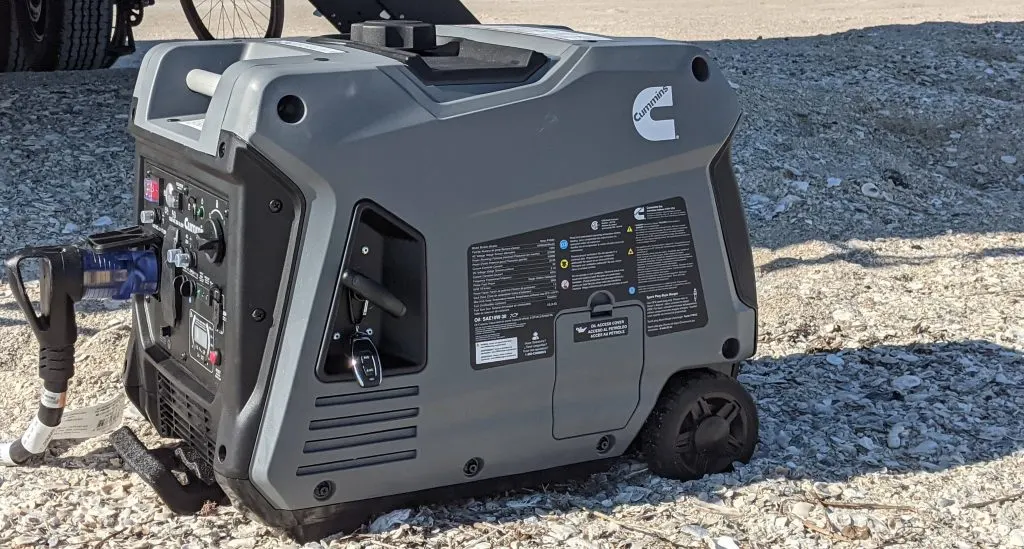Do you dislike the inconvenience of power outages? Your only choice is to use dependable power backup solutions. Recently, inverter generators have become incredibly popular. This is because of their versatility and dependability as a power source.
These generators are a flexible choice whether you’re an outdoor enthusiast, need electricity during blackouts, or need a reliable source of power for your devices. What is an inverter generator, though? Continue reading to learn more.
Inverter generators: what are they?
This is a kind of portable generator that generates power using an electronic alternator. How does it function exactly? Utilizing cutting-edge technology, inverter generators transform engine-generated alternating current power into direct current power.
Then, back into clean, steady AC power suitable for a range of tools and household appliances. It is intended to produce clean, steady power in order to decrease pollutants and maximize fuel efficiency. This explains the recent rise in inverter generator sales.
The conversion process enables inverter generators to generate a steady and high-quality power output. These generators are perfect for many applications. This is because they are designed to maintain constant voltage and frequency. Inverter generators are safe for powering delicate electronic devices like laptops, cell phones, and contemporary appliances.
How do they operate?
Here is a detailed breakdown of how the inverter generator operates.
- Fuel, specifically gasoline, powers the engine, which turns the alternator.
- The AC power produced by the alternator is erratic and unusable in this state.
- This generated AC electricity is routed to the rectifier circuit, which transforms it into DC power.
- The generator’s inverter receives the DC power and transforms it back into AC. The resulting AC power is pure and devoid of noticeable aberrations.
- The power can now be used through the generator outlets.
What is the difference between an inverter, generator, and inverter generator?
An inverter vs generator
An inverter regulates voltage to guarantee that power is steady and safe for contemporary electronics. On the other hand, a generator generates power. That is the basic distinction between the two equipment.
A generator’s main role is to generate electricity by transforming mechanical energy—typically from gasoline or diesel—into electrical energy (AC power).
However, an inverter doesn’t produce electricity. Rather, it stabilizes and controls power by converting AC to DC and back to clean AC.
Regarding applications, generators are frequently employed as the main power supply in remote areas or as a backup during blackouts. Inverters are typically used with solar or generator power systems to control and guarantee that the power used is safe for delicate devices.
Comparing conventional and inverter generators
Let’s now compare inverters and generators:
- Inverter generators use an alternator to transform AC power into direct current (DC). This is subsequently converted back into cleaner AC energy by a microprocessor.
- The inverter generator generates cleaner power with less fluctuation and a more steady voltage.
- An inverter generator is lighter and smaller than a traditional generator.
- Inverter generators use less fuel by modifying engine speed in response to power demand.
- Inverter generators typically offer longer operating times. This is in addition to being quieter than their counterparts.
- Inverter generators are more costly than conventional generators. However, their greater performance frequently offsets the cost difference.
How do generators and inverters work together?
A conventional generator generates raw AC power, which can vary and harm electronics. An inverter controls the output of a generator by converting it to DC and back to AC.
You can use this generator-to-inverter combination to obtain reliable electricity without having to buy a complete inverter generator. For instance, you can soften voltage spikes and make it safe to power your electronics by attaching a generator inverter.
Additionally, it saves fuel by enabling the generator to operate at different speeds according to the amount of power required. This configuration is perfect for those with a traditional generator but need more reliable electricity for delicate devices.
Benefits and drawbacks of an inverter generator?
You now have a firm grasp on how inverter generators control power. It’s time to weigh the benefits and drawbacks of purchasing one for your home:
Benefits
Clean electricity
An inverter generator produces relatively little harmonic distortion in its AC electricity. The clean sine wave AC power is safe for sensitive electronic devices like medical equipment and domestic appliances. It works well with tiny electronic gadgets.
Fuel efficiency
An inverter generator can generate AC electricity without constantly operating at 3600 rpm. The engine automatically modifies its speed based on the power that the linked load draws. The engine will operate at a lower speed and use less gasoline if there is less load.
Conversely, traditional generators run constantly, typically at 3600 RPM, independent of the amount of power that the linked load draws.
Portability
Most inverter generators on the market are compact and portable. They are the perfect portable power backup option for camping.
Parallel operation
A lot of inverter generators can run in parallel. You can combine several to produce the required power output if one is insufficient to suit your needs. This is not something that traditional generators can do.
Silent work
Compared to a traditional generator, the generator produces less noise because it runs at variable speed. The noise levels are manageable and won’t interfere with your camping experience.
Drawbacks
Low power output
Generally speaking, an inverter generator’s power output is lower than that of a conventional AC generator. However, it is still more than sufficient for small appliances and ordinary household devices.
Costly
Inverter generators are more expensive than traditional ones. This is because they incorporate effective inverter technology into intricate circuitry and designs. However, inverter generators are well worth the investment.
Safety concerns
The inverter generator’s engine runs on gasoline. Consequently, it will release gasses like carbon monoxide. It is not safe to use inside.
Conclusion
Inverter generators provide a dependable and adaptable power supply for a variety of uses. Its clean and steady electrical production is invaluable whether you’re camping, require emergency backup power, are engaging in recreational activities, or are using it for work.




